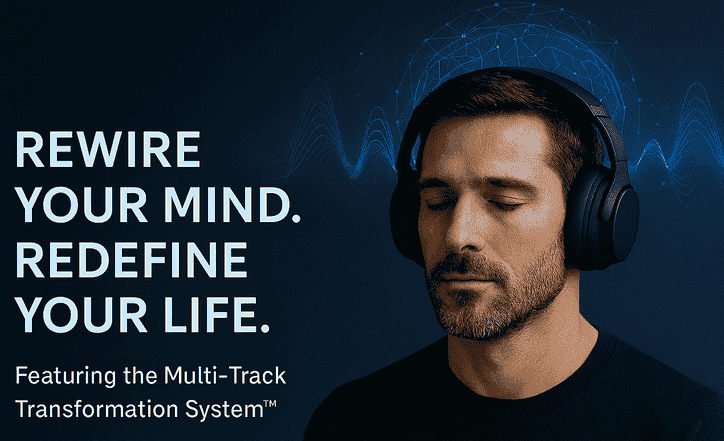Information | Techniques | Products
Tim Berners Lee Quotes & Biography - Inventor of the World Wide Web
 |
“The original idea of the web was that it should be a collaborative space where you can communicate through sharing information.”
“It's more a social creation than a technical one. I designed it for a social effect - to help people work together - and not as a technical toy.”
“The dream behind the Web is of a common information space in which we communicate by sharing information. Its universality is essential: the fact that a hypertext link can point to anything, be it personal, local or global, be it draft or highly polished.”
“It is not just about sharing information, but also about creating it together.”
“It's more a process than a static structure. It is more like an agora, where people come together to exchange ideas and goods.”
“It is a really powerful tool that can help people find each other, collaborate, and build communities.”
“It's a reflection of our society and that mirror is going to be reflecting what we see. If we do not like what we see in that mirror the problem is not to fix the mirror, we have to fix society.”
“It is not the glorification of technology but the use of technology to bring people together.”
“It's a unique and creative space because it allows anyone to be a publisher and to have access to a global audience.”
 |
Hypnosis MP3 Downloads
for Self Help, Business and Sports
*
or..
Dissolve Old Habits. Unlock the Life You Truly Desire ⚡
Customized Hypnosis Recordings
24/7 Reinforcement
Ongoing Transformation
Life Improvement
Achieve Goals
New Habits
Overcome Barriers
Stress Release
Business, Health, Relationships..
5 Bonus Tracks (valued $450)
Ongoing Life Transformation
“It is a a powerful tool, and it’s up to all of us to ensure that it is used to create a better world.”
“It's more important than ever before, and it’s up to all of us to protect it and ensure that it remains open and accessible to all.”
“It is a platform for creativity, innovation, and collaboration. It’s up to us to make the most of it.”
“It's a human right, and we must fight to ensure that it remains open and accessible to all.”
“It is like a vast library where we can access information on any topic, from anywhere in the world, at any time.”
“It's a network of people, and we must work together to keep it open, accessible, and free.”
“It is a tool that can help us solve some of the biggest challenges facing our world today, from climate change to poverty to inequality.”
“It's a global platform that connects people, ideas, and resources in new and innovative ways.”
“It is a democratizing force that gives everyone a voice and a platform to share their ideas and perspectives.”
“It's a space for creativity and exploration, where anyone can experiment with new ideas and technologies.”
“It is not just a technology, but a culture and a community of people working together to create something amazing.”
“It's a powerful tool for social and political change, and we must use it to create a more just and equitable world.”
“It is a platform for diversity, inclusion, and empowerment. We must work to ensure that everyone has access to it.”
“It's a constantly evolving platform, and it’s up to all of us to shape its future.”
“It is a tool that can bring people together across borders, cultures, and languages.”
“It's a platform for innovation and entrepreneurship, and we must ensure that it remains open and accessible to all.”
“It is not just a way to access information, but a way to connect with people and build relationships.”
“It's a space for learning and growth, where anyone can access information and resources to improve their lives.”
 |
|---|
Articles for Your Personal Growth:
How to Rewire Your Subconscious Mind for Success
Scientific Studies / Research on the Mind and How It Influences Life
“It is a platform for creativity and self-expression, and we must ensure that everyone has the freedom to use it in their own way.”
“It's a space for community and collaboration, where we can come together to work towards common goals and create something greater than ourselves.”
“It is a tool that can help us build a better future for ourselves and for generations to come.”
“It's a constantly evolving platform, and it’s up to all of us to shape its evolution in a way that benefits everyone.”
“It is a space for exploration and discovery, where we can learn about the world and connect with people who share our passions and interests.”
“It's a powerful tool for organizing and mobilizing people towards social and political change.”
Tim Berners-Lee - Biography
Tim Berners-Lee is a British computer scientist and the inventor of the World Wide Web, which revolutionized the way we communicate and access information.
Born on June 8, 1955, in London, England, he studied physics at the University of Oxford before pursuing a career in computing.
While working at CERN, the European particle physics research center in Switzerland, he proposed a way to share information between different computers using a system of hypertext documents linked through the internet, which he called the World Wide Web.
His invention revolutionized the way we access and share information, making the internet accessible to people around the world and changing the way we communicate, conduct business, and interact with one another.
Today, he continues to advocate for a free and open internet, working to ensure that the World Wide Web remains a tool for empowerment and social change.
Major Works
His most notable work is, of course, the invention of the World Wide Web, which he developed in the late 1980s while working at CERN.
He proposed the idea of a web of hypertext documents that could be linked together and accessed through a browser, using the internet as a means of communication and data transfer.
With the help of colleagues at CERN, he developed the first web browser, called WorldWideWeb, and the first web server, which he called httpd.
In 1990, he wrote the first web page, which explained the concept of the World Wide Web and provided instructions on how to use it.
Berners-Lee's invention has had a profound impact on the world, transforming the way we access and share information, conduct business, and interact with one another.
Awards and Accolades
He has received numerous awards and accolades for his contributions to the field of computing, including the Turing Award, the Millennium Technology Prize, and the Queen Elizabeth Prize for Engineering.
In 1999, he was awarded knighthood by Queen Elizabeth II for his services to the global development of the internet.
In 2004, he was knighted by Queen Elizabeth II for his contributions to the development of the World Wide Web.
He has received numerous awards and accolades for his work, including the Turing Award, the Queen Elizabeth Prize for Engineering, and the Webby Lifetime Achievement Award.
Legacy and Impact
In 2004, he was knighted by Queen Elizabeth II for his contributions to the development of the World Wide Web.
In 2012, he was one of the key figures in the opening ceremony of the 2012 Summer Olympics in London, where he tweeted "This is for everyone" from the top of the Olympic Stadium, which was displayed on the scoreboard.
He has been a vocal advocate for net neutrality, urging governments to keep the internet open and accessible to all.
He is also the founder of the World Wide Web Foundation, which aims to promote the open and free use of the internet as a public good.
He continues to work on the development of new web technologies through his involvement with the World Wide Web Consortium (W3C).
He has received numerous awards and honors throughout his career, including the Japan Prize, the Millennium Technology Prize, and the Turing Award.
Today, the World Wide Web is an indispensable part of modern life, with billions of people around the world using it every day for everything from communication and entertainment to education and commerce.
His invention has revolutionized the way we access and share information, and has paved the way for countless technological innovations.
His vision of a "web for everyone" has become a reality, and his legacy continues to inspire new generations of innovators to use technology to make the world a better place.
Bibliography
"Weaving the Web: The Original Design and Ultimate Destiny of the World Wide Web"
"Weaving the Web: The Past, Present and Future of the World Wide Web by Its Inventor"
"How the Web was Born: The Story of the World Wide Web" by James Gillies and Robert Cailliau
"The Innovators: How a Group of Hackers, Geniuses, and Geeks Created the Digital Revolution" by Walter Isaacson
"The Cathedral & the Bazaar: Musings on Linux and Open Source by an Accidental Revolutionary" by Eric S. Raymond
"The Internet Galaxy: Reflections on the Internet, Business, and Society" by Manuel Castells
"Where Wizards Stay Up Late: The Origins of the Internet" by Katie Hafner and Matthew Lyon
🎧 Free MP3 Download - Get Started Today
Experience the power of guided hypnosis with our free relaxation program. Perfect for beginners!
💡 No email required - instant download. Want more? Check our full collection.



